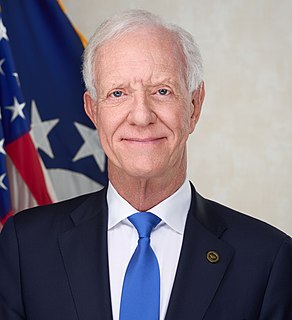A Quote by Neal Stephenson
Those who think through possible outcomes with discipline, forge connections, in so doing, to other cosmi in which those outcomes are more than mere possibilities. Such a consciousness is measurably, quantitatively different from one that has not undertaken the same work and so, yes, is able to make correct decisions in an Emergence where an untrained mind would be of little use.
Related Quotes
Expected outcomes contribute to motivation independently of self-efficacy beliefs when outcomes are not completely controlled by quality of performance. This occurs when extraneous factors also affect outcomes, or outcomes are socially tied to a minimum level of performance so that some variations in quality of performance above and below the standard do not produce differential outcomes
There are few things more bizarre than watching people advocate that another country be bombed even while acknowledging that it will achieve no good outcomes other than safeguarding the 'credibility' of those doing the bombing. Relatedly, it's hard to imagine a more potent sign of a weak, declining empire than having one's national 'credibility' depend upon periodically bombing other countries.
The management of creativity is more intimate. By that I mean that it deals with an individual's personal, psychological landscape. It deals with the way you create relationships. It deals with creating an atmosphere and environment that support the creative process. As a result, it is a management skill set that is inherently psychological and that encourages desired outcomes rather than demands those outcomes.
Accurate processing of information about outcomes is no simple task under the variable conditions of everyday life . . . usually, many factors enter into determining what effects, if any, given actions will have, Actions, therefore, produce outcomes probabilistically rather than certainly. Depending on the particular conjunction of factors, the same course of action may produce given outcomes regularly, occasionally, or only infrequently
There are times where I'd say the Oval Office, you use to gather the facts. The decisions you probably make late at night, or at least I do. But there are some times where you think you've made a decision, but during that walk, where you're announcing the decision, you've just got to make sure that, you're prepared to live with it, because as you know George, a lot of these decisions are not - the outcomes are uncertain.
Forcing your employees to follow required steps only prevents customer dissatisfaction. If your goal is truly to satisfy, to create advocates, then the step-by-step approach alone cannot get you there. Instead, you must select employees who have the talent to listen and to teach, and then you must focus them toward simple emotional outcomes like partnership and advice....Identify a person's strenths. Define outcomes that play to those strengths. Find a way to count, rate or rank those outcomes. And then let the person run.
A hundred years ago-even 20 or 30 years ago-it was possible, if not always easy, to close major business by calling on and satisfying a key decision-maker. Today, every piece of business entails multiple decisions, and those decisions are virtually never made by the same person. Not only do you have to contend with multiple decisions, but the people who make those decisions may not even work in the same place.
People are trying to build a society where they can talk across the aisle so to speak, and have civil discourse. At the same time we're trying to inform ourselves about what's really true so that we can make evidence based decisions that is better than superstition or rumor. But the fact is that people who use evidence based decision making have much better life outcomes, greater life satisfaction, they live longer, they make better personal and medical decisions, better financial decisions. But parallel to that is you can't reason somebody out of a position they didn't reason themselves into.
Given our inevitably incomplete knowledge about key structural aspects of our ever-changing economy and the sometimes asymmetric costs or benefits of particular outcomes, a central bank... need to consider not only the most likely future path for the economy but also the distribution of possible outcomes about that path. They then need to reach a judgment about the probabilities, costs, and benefits of the various possible outcomes under alternative choices for policy.





































